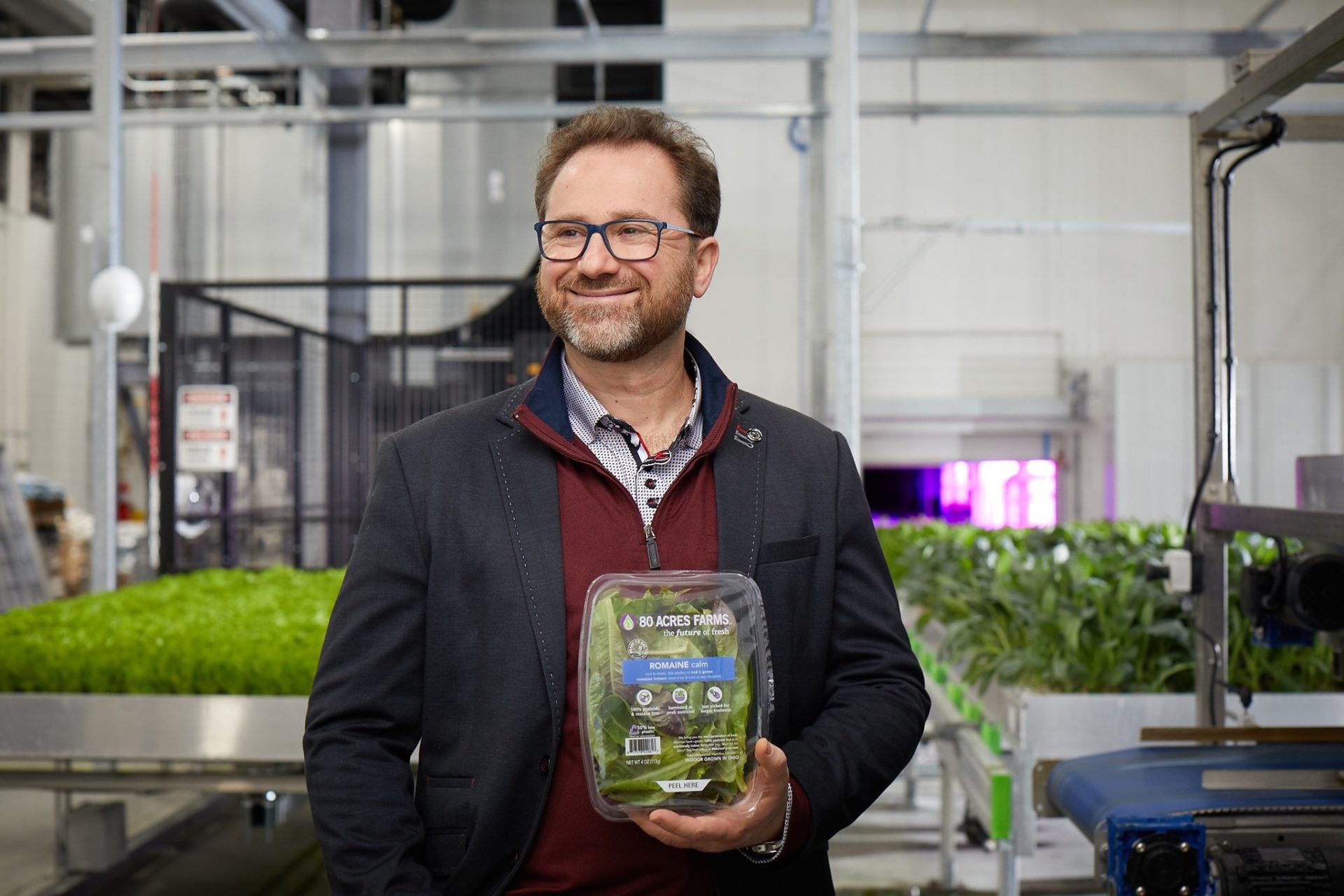The indoor farming sector is dazzling investors and attracting its fair share of nine-figure deals. But as the space grows more crowded and competitive, questions are sprouting up regarding market saturation, the right business models, and whether indoor mega-farms like the one Minnesota’s Revol Greens is planning are the way to go.
For Mike Zelkind, CEO at Ohio-based vertical ag operation 80 Acres Farms, not everyone will make it to the finish line.
“This is the way the market works. There will be winners and losers and there will be losers with very big names,” he tells AFN.
“But the world needs this and even the losers [will have been] very well-intentioned. My heart will go out to everyone who does not win because I know they fought the good fight.”
80 Acres just announced the close of a $160 million Series B round led by US growth equity firm General Atlantic.
Other investors in the round included Siemens Financial Services — the US financing arm of German tech giant Siemens — as well as Barclays, Blue Earth, Taurus Investment Holdings, and General Atlantic’s impact-focused BeyondNetZero team.
Although Zelkind views the indoor farming space as big enough for many players to do well, he thinks some recent valuations are exaggerated.
In his opinion, 80 Acres sets itself apart through its partnerships, like its joint venture with e-grocer Ocado and tech provider Priva. The trio formed the venture, Infinite Acres, in 2019 to help growers enter the tech-enabled indoor farming space.
Staying close to the consumer
80 Acres takes a decentralized approach to getting its produce on consumers’ tables, building its farms close to areas where its customers are located. The startup runs eight farms, and sells its products in around 600 retail and foodservice locations. Without sharing specific figures, it claims to have posted 450% growth in revenue since the end of last year.
Building close to its customer base has also been a foundational aspect of 80 Acres’ business model, Zelkind suggests.
“I don’t think there are any other farming operations today that have built a farm as close to the distribution center of their customer,” he says. “Just getting a little closer to the customer is not good enough.”
Zelkind claims that 80 Acres had a lot of options when it came to choosing investors for its Series B round but that funders with strategic angles were the winning choice. General Atlantic focuses on world-changing technologies, including foodtech, while Siemens can assist with continued industrialization of the startup’s capabilities, he adds.
80 Acres will use the new funding to expand its footprint while supporting product development. Based on his own observations of rival startups’ activities and claims, Zelkind argues that his company offers the widest variety of produce in the vertical farming industry, selling leafy greens, herbs, tomatoes, cucumbers, and microgreens, among others.
“I’m not aware of anybody even making a claim that they are commercially growing these items, and we’ve had the product in the marketplace for the last four years,” he says. “It’s not a claim – it’s a fact.”





